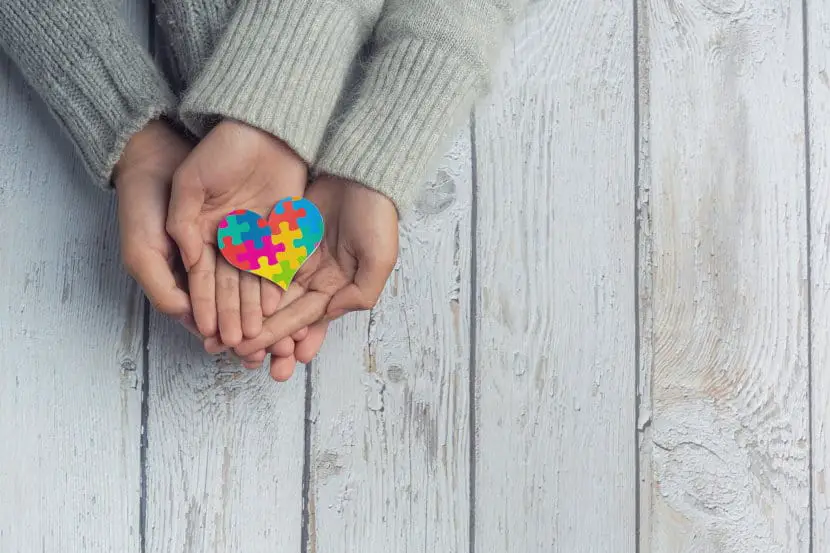Do Narcissists Love Their Mothers?
*We may earn a commission for purchases made using our links. Please see our disclosure to learn more.
Given the way narcissists behave, it can be difficult to think that they might love anyone. Still, doesn’t everyone love their mother? The truth is that no one can know what is truly in anyone’s heart, and of course, narcissists are human, which means they have emotions for the people around them. Any relationship that involves a narcissist is tricky to begin with, but the one between a narcissist and their mother is even more complex.
For narcissists, love is conditional. They love the people in their lives when they are giving what they want and need, but if that stops, they withdraw that love as punishment. This is true even between a narcissist and their mother, particularly if they blame their mother for their problems.
Most narcissists have difficulty expressing love for the people in their life. This may be because they never felt loved, or it could be because love makes them feel vulnerable, something narcissists hate. To truly understand how a narcissist might feel for someone as important in their life as their mother, you have to understand a little bit about how narcissism develops and how narcissists treat other people. Let’s begin with some basics.
What is the Relationship Like Between a Narcissist and His Mother?

Because narcissists lack what is called whole object relations and object constancy, they have unrealistically high expectations of other people. They also don’t see them as being stable, and they cannot maintain feelings of love if they feel hurt, angry, disappointed, or physically distant from someone.
If, for example, a healthy person is disappointed by or angry with someone they love, they still love them. They can separate their feelings of anger or disappointment from a constant feeling of love for that person. The narcissist cannot do this.
While narcissism can affect both men and women, it is more common in men, and there is a particular form of narcissism that occurs as a result of an unhealthy mother-son attachment relationship. If a boy’s mother is herself narcissistic, he is at greater risk than her daughter of becoming a narcissist himself.
In this case, the narcissistic mother idealizes her son early in life, which boosts his ego. Unfortunately, there will come a time when her son displeases her, and she begins to resent him. That causes the boy to resent her in return, and the only way he can deal with that feeling is to create his false image and infuse it with grandiose ideas. If he doesn’t do this, he will feel emotionally castrated.
When the young boy creates his false image, he starts putting himself first and begins to feel entitled. This is all true despite the fact that the boy truly feels a sense of profound insecurity and angst. This creates a rift between the boy and his mother, particularly as he enters adolescence and the relationship sours even more. This is much more likely to happen between a mother and her son as opposed to her daughter because the mother-daughter relationship is fundamentally different.
How Do Narcissists Treat Their Mothers?
How a narcissist treats their mother depends to a large extent on who they come to blame for their problems. As children, the developing narcissist is initially seeking to please both parents. They can even develop a form of codependency in their efforts to get loving approval.
If the narcissist’s mother is abusive and rejects the child, it creates resentment that may result in the narcissistic child treating their mother as inferior. They may criticize her constantly or become abusive themselves.
On the other hand, the child’s narcissism might not be the result of emotional abuse caused by their parents. There are other factors that can cause narcissistic personality disorder (NPD). Bad parenting is one cause, but there are genetic factors that can contribute to narcissistic personality disorder, there are other environmental factors aside from bad parenting, and there are also unintended events that affect children at critical points in their development.
Let’s examine these contributing factors one at a time.
Nature

This refers to genetic factors that govern the level of emotional empathy any one person has. Empathy refers to the ability to understand on a deep level what other people are feeling. Some empaths will even experience those feelings themselves, and for this reason, they are referred to as super empaths.
The more empathy you possess, the less likely it is that you will develop narcissism even if you are raised by narcissistic parents. It’s more likely you would become codependent in the effort to help them alleviate the pain you sense they truly feel.
A 2014 study of twins conducted by researchers at the Chinese Academy of Sciences, the University of Oklahoma, and the University of Granada found that narcissism is moderately heritable. That means that there are genetic factors that come into play in the development of narcissism.
Specifically, grandiosity and entitlement were found to be heritable traits associated with narcissism. Grandiosity is considered to be an intrapersonal trait meaning that it refers to what the narcissist feels about themselves.
Entitlement, on the other hand, is interpersonal since it refers to how the narcissist feels about what they are entitled to receive from other people. Clearly, individuals born with low levels of empathy combined with a greater tendency for grandiosity and entitlement are at a higher risk of developing NPD.
Nurture

This is where bad parenting comes in. Nurture refers to how you are treated from the moment you’re born until you are able to care for yourself. Normally, a child develops whole objects relations and object constancy from watching their family and seeing how they treat the child and other people too.
Children with parents who switch between treating them all good or all bad make it very hard for the child to be able to integrate the oppositional treatment patterns into a single coherent picture. For the narcissist, the concept of all good means nothing less than perfect. This is part of why they develop unrealistic expectations. In their mind, if you aren’t all good, you’re the opposite which means worthless.
Another factor related to nurture is family values. It’s natural for children to want to please their parents, and of course, initially they believe their parents know everything. They look to them for guidance, and they do everything possible to avoid being punished by them.
If their parents are narcissistic, they often create a competitive environment for their children. The child who pleases them the most receives the reward of their love while the others are harshly criticized. This teaches the child that love is conditional, and they also learn the painful sting of rejection at a young age.
This unstable treatment often causes the narcissist’s children to dissociate from the abusive treatment. They don’t remember what happened, and they frequently make up stories to fill in their memory gaps. From there, they become narcissistic themselves, or they become codependent.
The narcissistic child becomes arrogant, entitled, demanding, and needy like their parents while the codependent child learns to forego their own needs in the futile attempt to please their narcissistic abusers.
Fate

The third factor that can result in a child developing NPD is what you might call fate. These are events that occurred at critical times in a child’s development that had unintended consequences. Often, these kinds of events occur in the first two or three years of life, and they can have a tremendous impact on the infant.
During this stage, an infant either learns that the world is a relatively safe place where most of their needs will be met, or they learn that the world is unsafe. If unsafe, that means their needs may not be met, and that results in problems with attachment later in life.
If, for example, a child’s mother is not available for any reason during this critical developmental stage, it can have an incredibly negative effect on the child. The separation might not be due to anything the mother did. It could be the result of an illness, war, death, divorce, or a problem like post-partum depression.
If another caretaker steps in and takes the mother’s place, the damage can be minimized, but if not, it can be extremely bad. Children who learn the world is unsafe often feel they can’t depend on anyone other than themselves. They don’t want to be seen as vulnerable, and it can be easy for them to develop grandiose ideas of their own abilities.
A mother’s guilt about not being there can cause her to spoil her child as he or she continues to grow, and that can create a sense of entitlement. From there, the child may develop NPD and become increasingly arrogant and demanding.
Regardless of the factors affecting the development of NPD, the narcissist becomes increasingly demanding of the people around them. This includes the narcissist’s mother who may further enable her child’s behavior.
What is the Relationship Like Between Adult Narcissists and Their Mothers?
When a narcissistic child grows up, their relationship with their mother depends on several factors. These include whether the mother is a narcissist or was an abusive parent as well as the relationship between the narcissist and their mother while they were growing up.

If the narcissist blames their mother for any problems they may have, they may be extremely critical of their mother. Their interactions may be aggressive or abusive in nature. If the mother is narcissistic too, she may give as good as she gets.
Additionally, narcissistic children of narcissistic mothers sometimes develop a particularly toxic bond with their mother. They see their mother and themselves as some kind of super-family. They can even become an abusive unit whereby they work together to get what they believe they deserve. They enable each other’s behavior in this case.
On the other hand, if the mother is codependent or an enabler, her narcissistic child will not hesitate to take advantage of her. The child becomes increasingly abusive since their mother will not be able to live up to their excessively high expectations.
These situations can easily lead to elder abuse. The narcissistic child won’t hesitate to take anything and everything from their mother. They believe they are entitled to whatever they need, and if they blame their mother for their problems, they convince themselves she should pay.
What Can Healthy Parents Do If Their Child is Becoming Narcissistic?
Healthy parents who recognize the traits of narcissism in their children can work to help them reduce those tendencies. There are several ways to help children understand that nobody is perfect and help them develop more empathy.
First, of course, parents should love their children no matter their flaws. That helps them develop a healthy sense of self. They know that they don’t have to fear making a mistake because it won’t mean you will withdraw your love.
Another way to nip that narcissism in the bud is to be focused in your praise of your children. Be specific rather than general. For example, you don’t want to just say, “Good job.” It’s better to say something like, “You really did a good job getting the colors just right in the drawing. You have a great sense of color.”
That kind of praise is very specific, and it focuses on the action taken by the child rather than something inherent in the child’s character. If you tie your praise to the child’s character, they will come to associate their performance with being either good or bad.
You also want to stay focused on the present effort rather than using words like always or never. Lumping past performance in with the present will water down the praise for this job. You also don’t want to overdo the praise. That causes your child to crave compliments which can easily turn into narcissistic supply.
You should also be careful to praise only what is worthy of a compliment. If you praise everything they do, they can develop grandiose ideas. Lastly, teach them the gold rule so that they develop empathy for other people. They learn to put themselves in other people’s shoes.
How to Teach a Child Empathy

One of the best ways to ensure a child is not a narcissist is to teach them empathy. A lack of empathy is one of the main characteristics of the narcissist. If they were truly able to understand how other people and how their actions affect the ones they love, they would be far less likely to engage in toxic behavior.
All children need to learn to understand how other people feel, but this is particularly true for narcissistic children. They need help learning to respond in ways that are caring and kind. Parents of narcissistic children can help their children develop empathy by talking about feelings people have when the child sees them in a movie, or reads about them in a book, or of course, if they come up in real life.
Another good exercise to practice with your child is to help them appreciate the satisfaction gained from anonymous acts of kindness. If you help them do something nice for someone else without expecting praise for it, they will learn the effect that has on their self-esteem.
In much the same way, you should support your child in their efforts to develop genuine friendships. This helps them to learn to make strong connections with people they really like, and friendships are one of the best antidotes to narcissism around.
If your child acts in an insensitive manner, you can pull them aside and help them put themselves in that person’s place. Do this gently, with compassion, and while being mindful of how fragile your child is, but help them imagine how their actions made the other person feel. Instead of punishing them for their behavior, help them learn how to make amends to repair the damage they have done.
How Can the Mother of a Narcissistic Child Avoid Codependency?
If you’re the mother of a narcissistic child, it can be difficult to avoid becoming codependent or otherwise enabling your child’s behavior. You love your child and want the best for them, and it’s natural to feel like your children are special too. But how do you protect yourself from falling into the trap of codependency?
People who are codependent put other people’s needs ahead of their own. That’s also natural for a mother to do with her children, but how do you walk that line between being a good mother and codependency. The key is in recognizing that a codependent mother isn’t doing her children any favors.
You might think that giving your children everything they want or praising their every move is helpful for them, but the truth is they need to develop a true sense of their abilities. This will help them improve and learn how to meet the challenges that life presents for everyone.
If you want to really give them a gift, give them the gift of knowing they can overcome any weaknesses or flaws. Help them to understand they have inherent self-worth by showing them that you value yourself and by showing them that everyone should.
Teach them respect for other people by setting and enforcing your own personal boundaries. This keeps you from falling into codependency, and it helps your narcissistic child understand that they need to respect other people’s boundaries. By teaching your children these values, you are truly preparing them for the difficulties of life that everyone eventually faces.
How Can You Protect Your Children from a Narcissistic Parent

If you’re the mother or father of a child whose other parent is a narcissist, there are some things you can do to prevent them from developing narcissism. It can be challenging to help them see that their other parent is abusive, but you can teach them to develop appropriate boundaries and to respect other people.
This begins with self-respect so don’t blame yourself for their situation. Whatever brought you together with the narcissist is in the past, and you need to concentrate on how you can best help your child. Let go of the self-blame and focus on teaching your child the value of self-respect and empathy for others.
Part of helping them develop self-respect is letting them be angry. They have a right to feel their feelings, and when you validate that right, you teach them that they are worthy individuals who don’t deserve abusive treatment.
Stay calm and control your outbursts so that you can show your children that they can be in control of their emotions. Help them to realize that other people do not control their emotions, they do. When this is combined with instilling a strong sense of self-worth, your children will be able to weather the emotional abuse of their narcissistic parent.
It’s important that your children understand they are not to blame for the actions of their narcissistic parent, and they should also understand they are not alone in this problem. Therapy can help them process their emotions of guilt, and it can help them see other people have narcissistic parents.
All of these strategies can help your child understand they are inherently worthy of love and that what they are getting from their narcissistic parent is not a good expression of love. That can help prevent them from becoming narcissists themselves.
Final Thoughts
Do narcissistic children love their mother? Perhaps, but as with narcissistic adults, they don’t know how to show that love. Regardless of whether their mother was narcissistic herself, codependent, or perfectly healthy, their relationship with her is complicated by the narcissism. Like other relationships with a narcissist, it will be toxic without well-maintained boundaries and an insistence on respect.
If you’re the mother of a narcissist seeking help, you need this free copy of my 5 Step Roadmap to Heal Emotional Triggers. It can help you heal the emotional triggers your child can use to control you, and that’s good for both of you. Just click on the link and I’ll send it directly to your inbox for free!
--
If you want more tips for dealing with narcissists, setting boundaries, and managing emotional triggers, make sure you subscribe to my youtube channel




